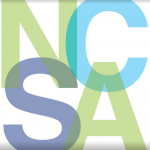The recently-created National Council on Severe Autism (NCSA) seeks to advocate for the service, housing and policy needs of individuals with severe autism, whom NCSA leaders say are often marginalized. They claim that the popular understanding of autism is “romanticized and sugar-coated,” mainly by portrayals of high functioning individuals on the spectrum in TV, books and other media. NCSA leadership has issued position statements and say they are creating a think tank on adult autism policy.
Two self-advocates write that Delaware’s rules concerning public meetings, established under the state Freedom of Information Act in 1977, are out of date and place burdens on people with disabilities who wish to participate. In particular, they cite the requirement that all meeting participants must be physically present in the same public place as burdensome. They suggest integrating widely-used videoconferencing technology that would enable people to participate from more convenient locations.
The Department of Health and Social Services will distribute February’s food stamp money by Jan. 20 to the approximately 136,000 Delaware households that receive the benefit. State food stamp programs, which rely on funding from the federal Department of Agriculture, cannot receive previously appropriated funds after that date. The programs’ status for March and beyond depends on the government reopening and passing a new funding bill.
Delaware recently received a $4.2 million federal grant to improve service provision for families of children ages 0-5. The grant requires the Delaware Department of Education (DOE) to assess families’ needs, including early intervention and care for children with disabilities.
The Delaware Interscholastic Athletic Association recently created a high school championship tournament for Unified Basketball. It joins flag football and indoor and outdoor track and field as the Special Olympics sports in which high school teams comprised of athletes with and without disabilities compete for a state title.





